Networking EOSC and NFDI even better – that was the aim of the two-day EOSCxNFDI event. As a side event of the EOSC Symposium 2024, EOSCxNFDI took place on 23 and 24 October at the H4 Hotel Berlin-Alexanderplatz. A total of 122 people attended.
As the first event of its kind, EOSCxNFDI was a successful kick-off for even more European exchange. 38 per cent of participants came from other European countries. Especially in the context of the design of EOSC nodes, entry points for users into the EOSC network, the exchange between different European players is of current relevance. People from institutions in 14 countries took part in the event: Austria, Belgium, the Czech Republic, Denmark, Finland, France, Germany, Greece, Ireland, the Netherlands, Norway, Spain, Switzerland and the UK.

The programme consisted of presentations and interactive parts such as a World Café and networking opportunities. Immediately following the EOSC Symposium, the topic ‘Intersection of the NFDI and EOSC thematic communities’ was on the agenda from the perspective of different disciplines. In short lightening talks, six experts from the NFDI network explained how their institutions or consortia are involved in research data management (RDM) at national and international level, where successful collaborations already exist and what challenges still remain. The speakers came from the fields of health/life science data, data science and natural sciences.
Lightening Talks
- ZB MED/NFDI4Health: Prof. Dr. Juliane Fluck – Embedding of NFDI4Health services in European health standards and infrastructures
- ELIXIR/GHGA: Prof. Dr. Oliver Kohlbacher – ELIXIR-DE and GHGA
- Helmholtz-DESY/DAPHNE4NFDI: Prof. Dr. Patrick Fuhrmann – Intersection of the NFDI and EOSC thematic communities! A DESY perspective
- Fraunhofer FOKUS/NFDI4DataScience: Prof. Dr. Sonja Schimmler – Towards a National Research Data Infrastructure for Data Science and Artificial Intelligence
- DKRZ: Hannes Thiemann – Example of an international data infrastructure in climate research
- HHU Düsseldorf/NFDI4BIOIMAGE: apl. Prof. Dr. Stefanie Weidtkamp-Peters – Opportunities for connecting NFDI with the international community – experiences from the BioImaging Community
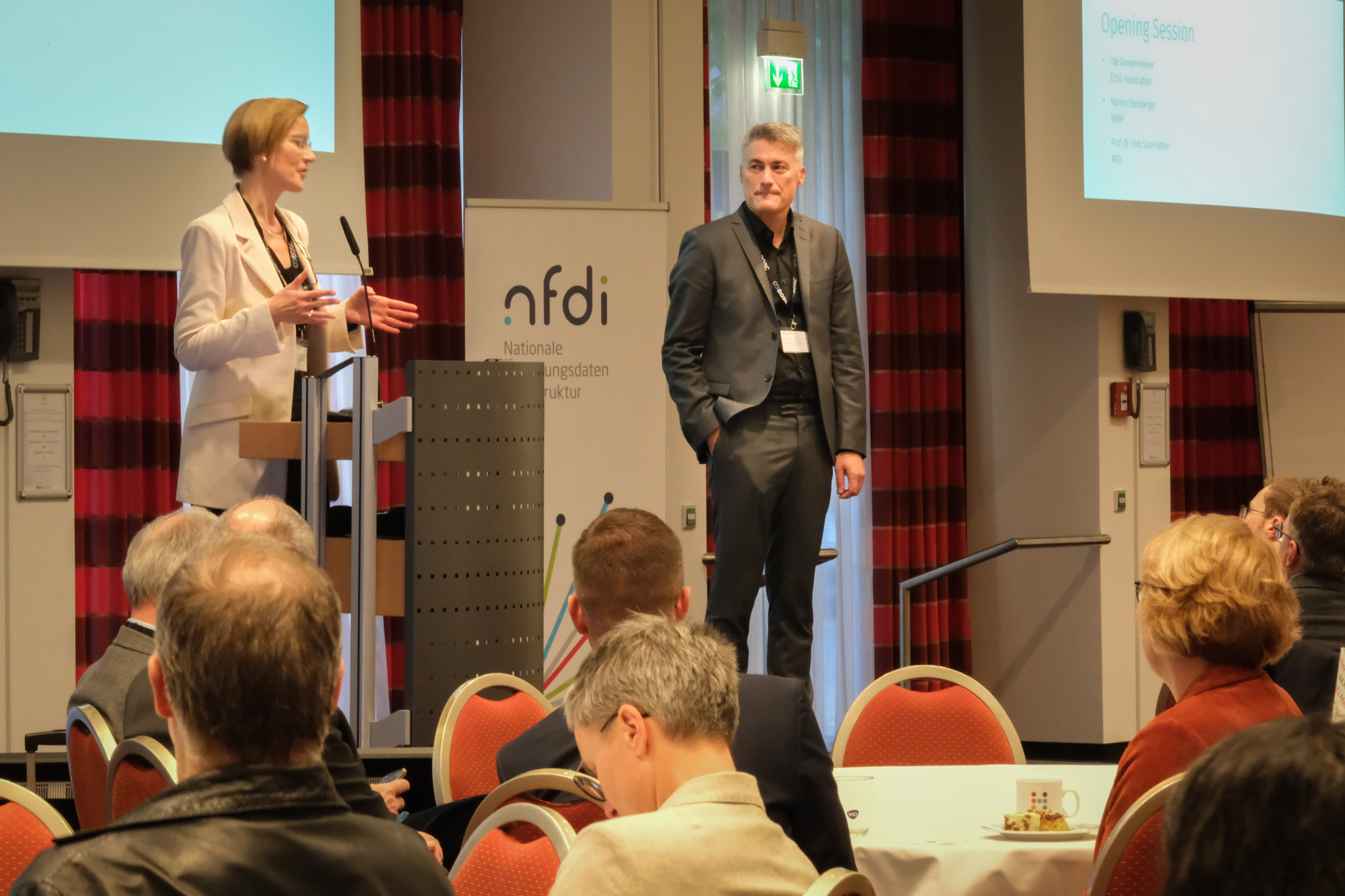
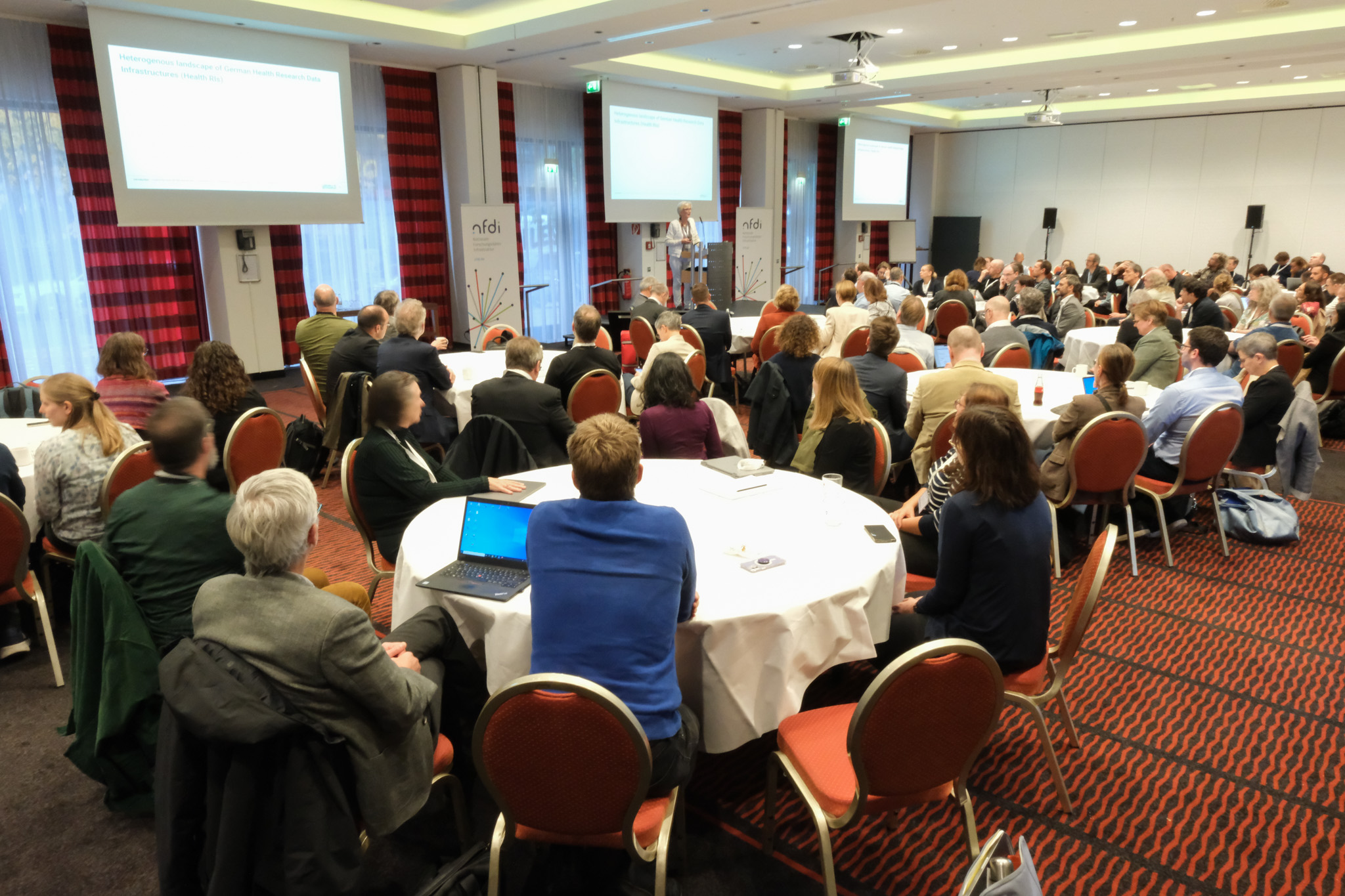
The multi-perspective approach also characterised the evening programme. The event at the Schleswig-Holstein State Representation, to which political representatives were also invited, focussed on RDM at European, national and regional level. In the panel discussion ‘Three perspectives, one goal – Making research data FAIR on European, national and regional level’, moderated by Felix Krömer, Prof. Dr. Peter Benner (Max Planck Institute Magdeburg), Ute Gunsenheimer (EOSC Association), Prof. Dr. Manfred Hauswirth (Fraunhofer FOKUS, TU Berlin) and Prof. Dr. York Sure-Vetter (NFDI) shared their views. They agreed that a cultural change in science is necessary at all levels in order to make research data more FAIR. From the panellists’ point of view, this requires more training and further education opportunities on the topic of RDM as well as new positions at institutions such as data stewards. After the entertaining discussion, a networking session took place as part of a standing reception.
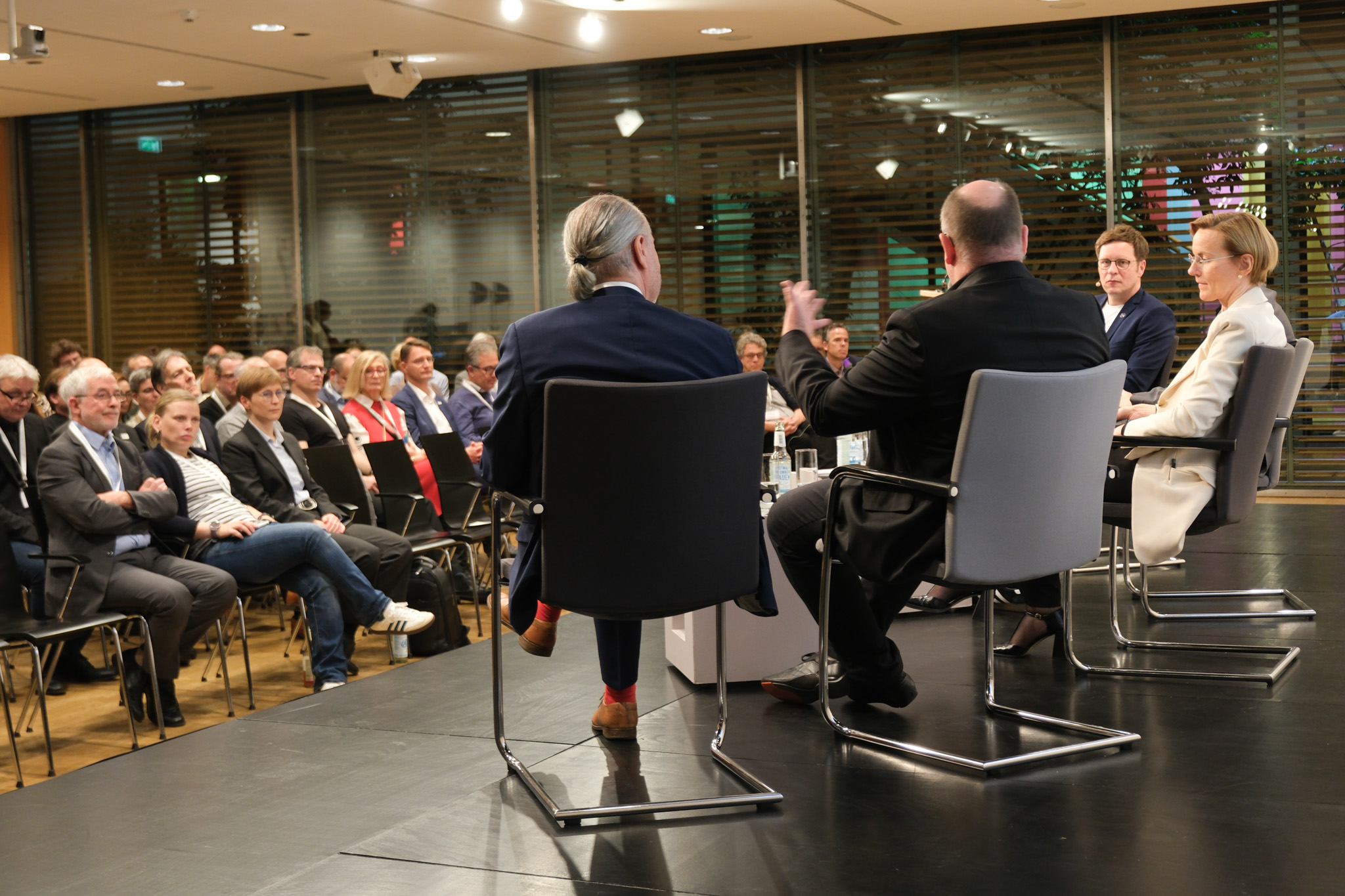
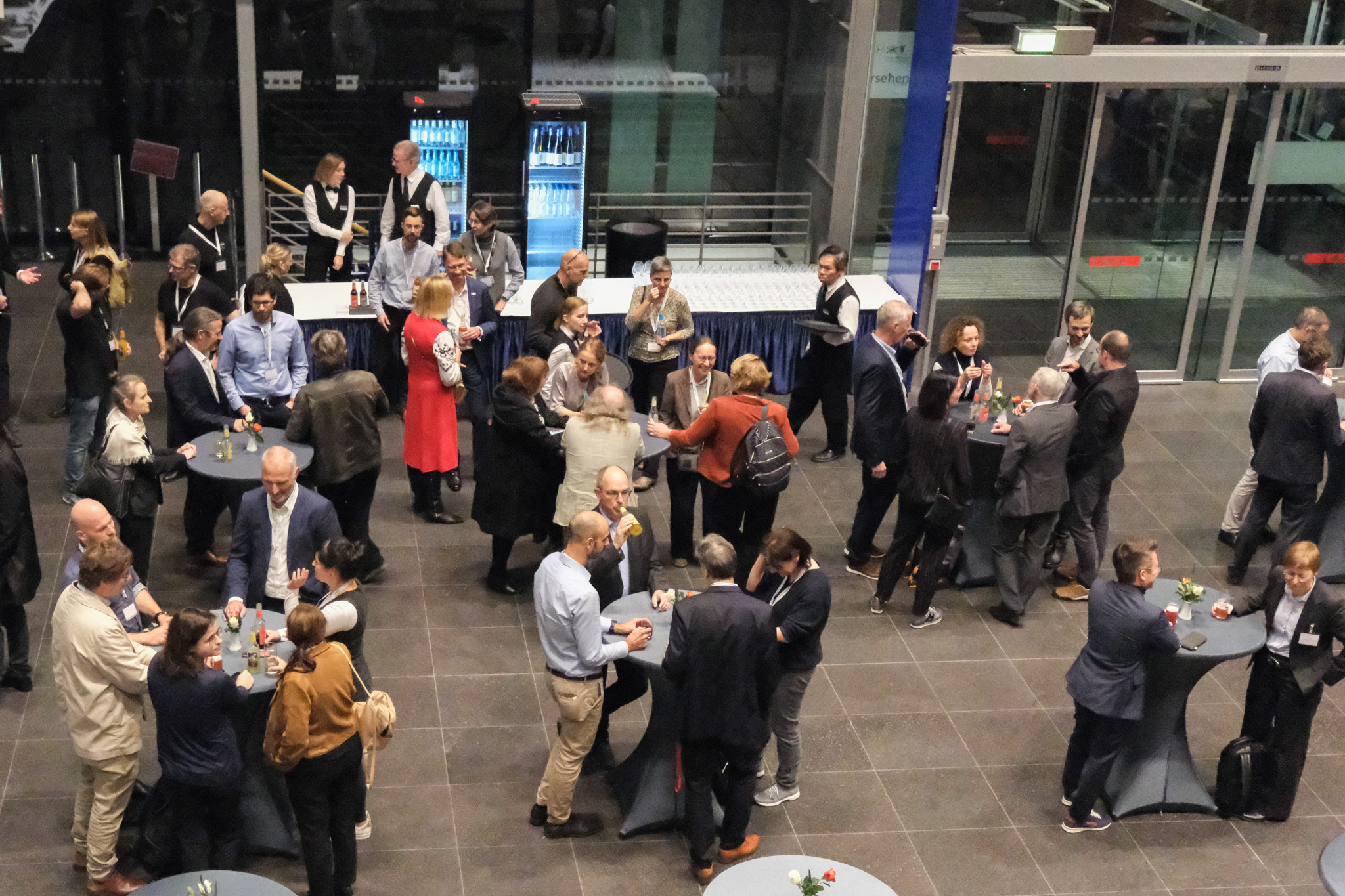
The second day of the event started with a ‘Setting the scene’ session. This included four presentations in which projects around EOSC and NFDI were presented.
Talks „Setting the Scene”
- RfII/Base4NFDI: Prof. Dr. Lars Bernard – Germany‘s RDM Infrastructure landscape – How NFDI and Base4NFDI could link into EOSC ?!?
- European Commission DG CNECT: Peter Szegedi – EOSC EU Node Procurement; Current developments in EOSC from the perspective of the European Commission
- EOSC EU Node/GWDG: Prof. Dr. Philipp Wieder – Potential of the EOSC Node Concept for National Infrastructure Developments
- EOSC-Association/NFDI: Prof. Dr. Klaus Tochtermann – EOSC EU Node in relation to NFDI
The presentations created a common basis for the subsequent World Café format. Nine different topics that are of great importance to the EOSC and NFDI were discussed at group tables. In the first round, participants were asked to describe the current status at national and international level: What initiatives are dedicated to a topic? What has been achieved so far? What services are available? What is the international connection? In the second round, the aim was to find out what next steps are necessary: How can synergies be created between NFDI and EOSC? How can parallel developments be avoided? What should be the goal of cooperation?
World Café tables
- Infrastructure and basic services
- Health
- AI
- ERICS as EOSC thematic nodes – connection to NFDI Consortia?
- Education and Training
- Metadata
- FAIR Metrics
- Governance (2x)
- Industry Engagement
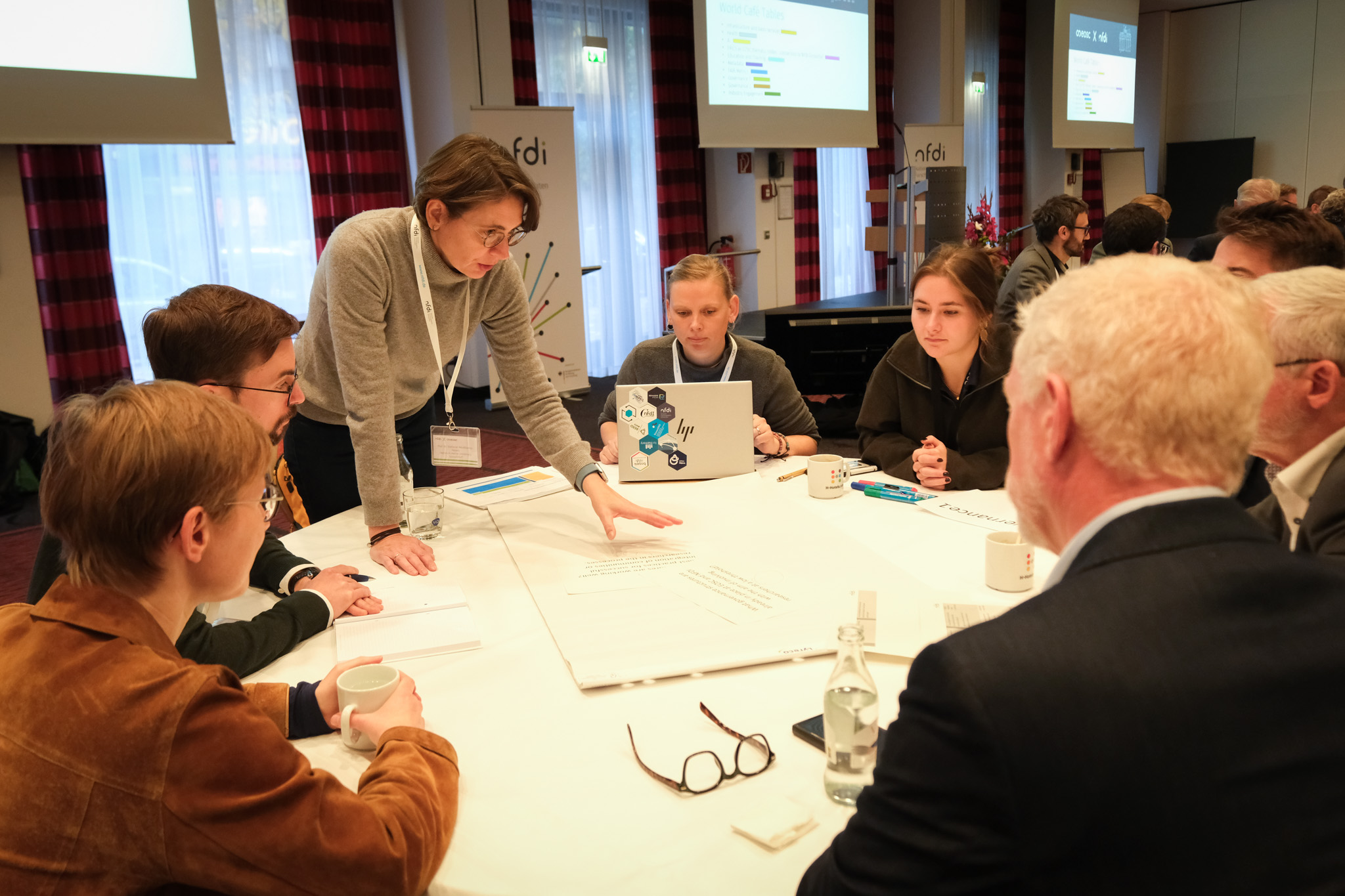
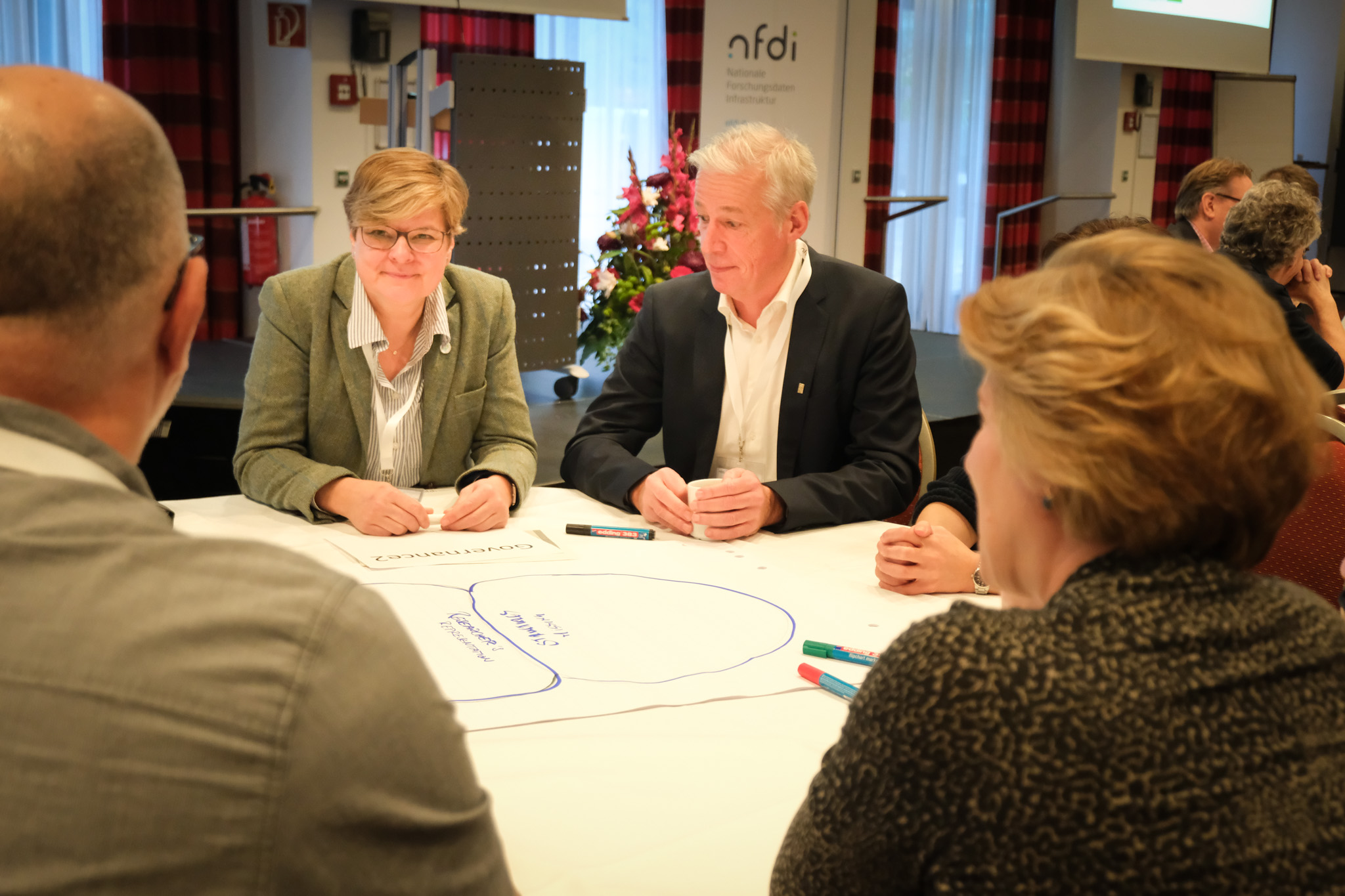
After the two active brainstorming and discussion rounds, the results of the tables were presented in plenary. Many opportunities for further collaboration were identified.
The final panel discussion focussed on the future of EOSC and NFDI. The panel consisted of Prof Dr Chris Eberl (Fraunhofer IWM/chair of the NFDI Consortia Assembly), Carole Goble (University of Manchester/ELIXIR UK), Karel Luyben (EOSC Association), Marion Steinberger ( Federal Ministry of Education and Research) and Prof Dr York Sure-Vetter (NFDI). Karel Luyben emphasised that the NFDI and EOSC have a lot in common and that Germany can be expected to participate strongly in the nodes. Klaus Tochtermann addressed the fact that an architecture for NFDI still needs to be developed over the next few years. York Sure-Vetter thanked all participants: ‘It was fantastic to see that all the important points were discussed at the tables.’ NFDI appears to be on the right track with its current strategy. ‘Within NFDI, we have applied to become a Candidate Node and we should start working on this now.’ All participants took away new homework, but also many new ideas.
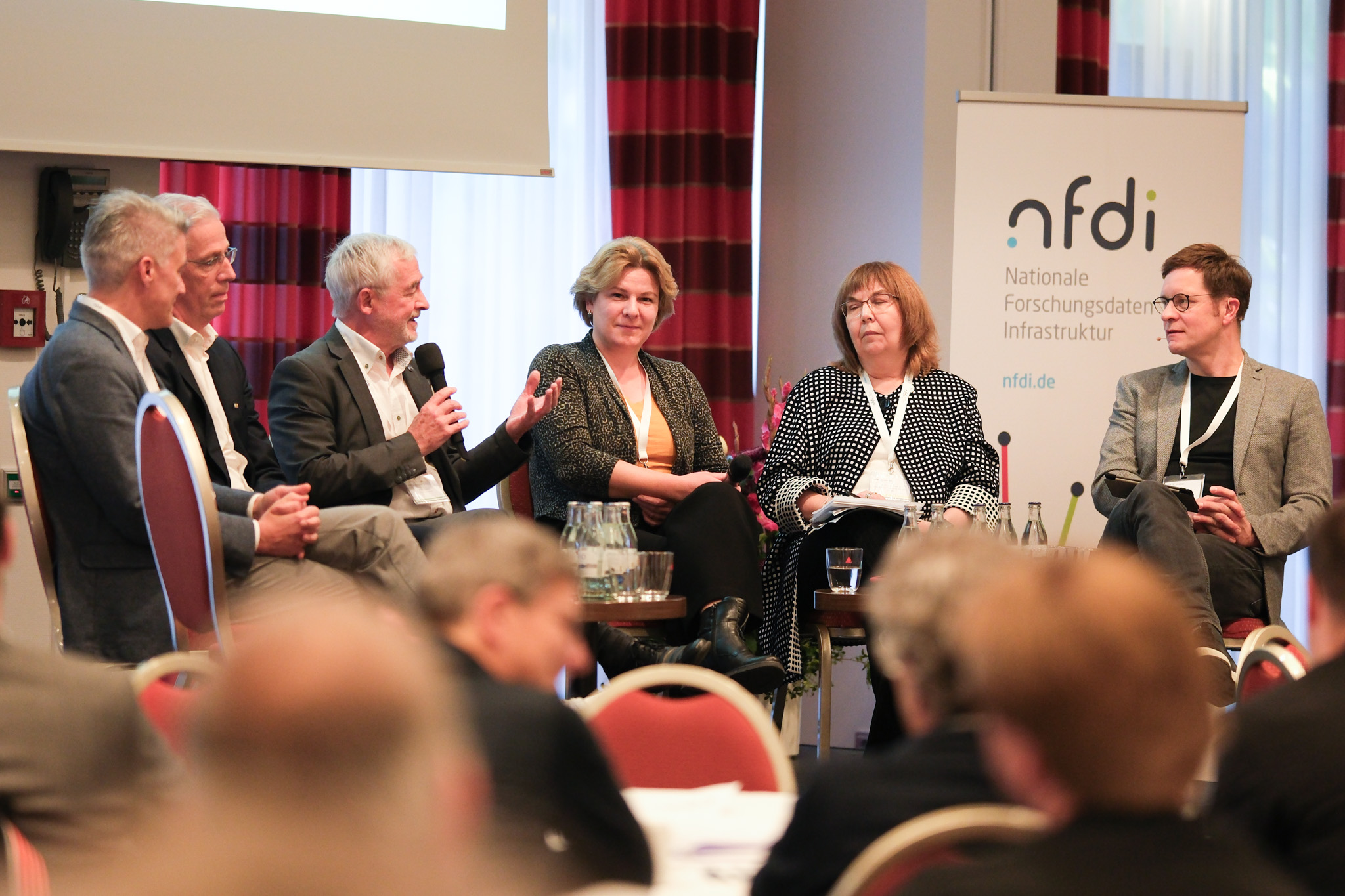
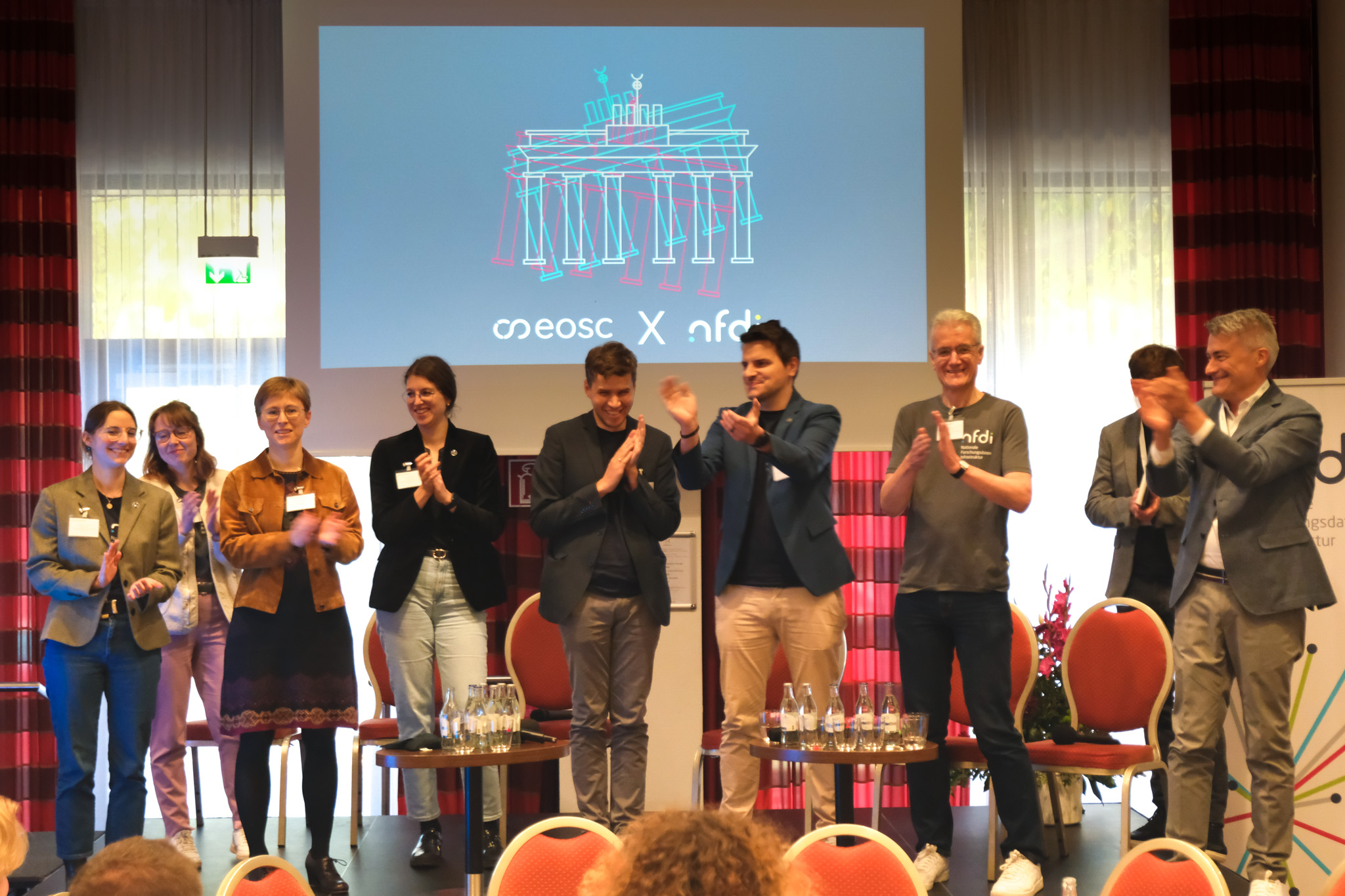
There are more impressions and statements from EOSCxNFDI in a video on the NFDI YouTube channel: https://www.youtube.com/watch?v=r3OKGwSa2Uo
Other posts
Posts
Love Data Week 2026: NFDI participates in the international action week on research data
From 9 to 13 February 2026, Love Data Week will take place once again—an international action week that brings together researchers, infrastructures, and data-interested communities worldwide. In 2026, the focus is once again on the conscious, responsible, and sustainable handling of research data.
News ELSA Webinar Series about Research Ethics
Tackling various topics and questions ranging from “What is (research) ethics?” to “Should we care about the CARE principles?” the series aims to engage anyone interested in ethics.
NFDITalks 2026: Inspiring lectures on NFDI and research data
NFDITalks is a series of events dedicated to the future of data research. This year, there are once again many exciting topics from our network and beyond on the agenda.
Recent Comments